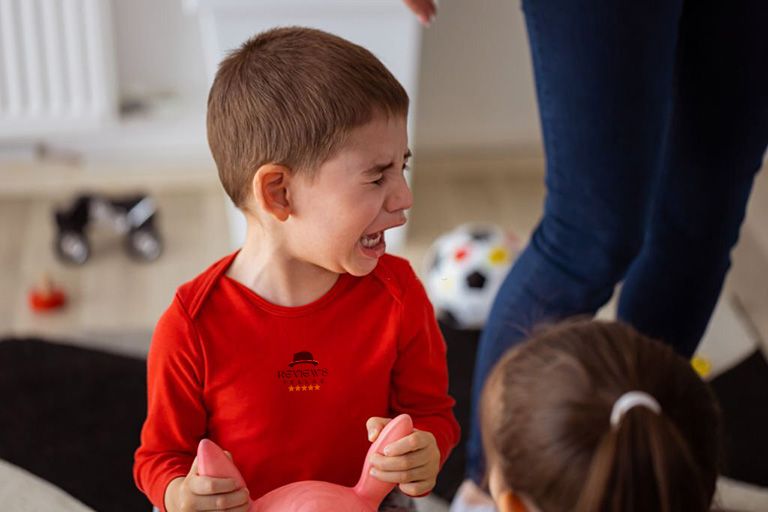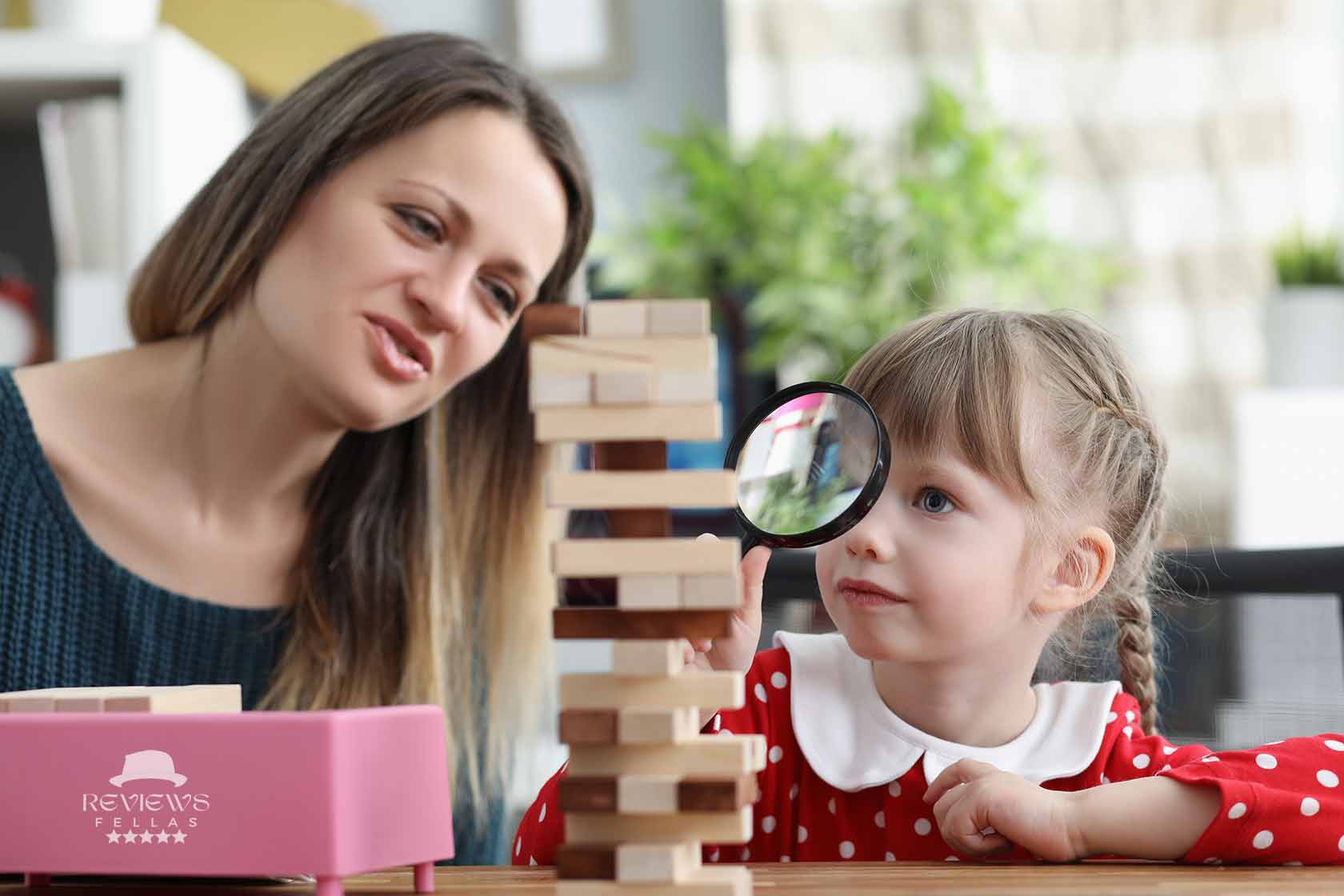This article is reviewed, corrected, and approved by: Julia Weiss CNP| RN | MPH
Dementia can affect anyone at any age. Yet, elderly persons are more frequently affected by it. In some rare cases, dementia can also affect children.
This is known as childhood dementia. Childhood dementia can cause a child to experience a plethora of symptoms that can be difficult for parents to identify and understand.
In this article, I will discuss 10 warning signs that parents need to be aware of in order to get their children the help they need.
What is Childhood Dementia?
A rare and complicated kind of dementia that affects youngsters is called childhood dementia. It may result in a number of issues, including behavioral changes, communication problems, memory loss, and trouble picking up new skills. This is a devastating condition that affects many children, resulting from an array of more than 70 exotic genetic disorders.
These include Batten disease, Sanfilippo disease, and Niemann-Pick type C - all causing progressive brain damage in those afflicted. The injury to the brain before or after birth, as well as disorders including meningitis, encephalitis, and certain genetic abnormalities, are regarded to be the main causes of childhood dementia.
Additionally, environmental factors, including lead poisoning, exposure to chemicals, and brain traumas, can cause childhood dementia. Sometimes there is no recognized reason why a youngster develops dementia.
Types of Childhood Dementia
There are multiple forms of childhood dementia, each with distinct signs, causes, and remedies. We'll explore the different types of childhood dementia and their characteristics.
Down Syndrome Dementia
Down syndrome dementia is a type of childhood dementia that affects individuals with down syndrome. It is a progressive brain disorder that typically develops in middle age, although some symptoms may appear earlier.
Symptoms of down syndrome dementia include memory loss, disorientation, and behavioral changes. Although there is no known therapy for down syndrome dementia, quick detection and management of symptoms can be beneficial.
Adrenoleukodystrophy (ALD)
A uncommon hereditary condition called Adrenoleukodystrophy (ALD)
affects the adrenal glands and nerve system. It is a progressive disorder that leads to a decline in cognitive function, motor skills, and communication abilities. Girls may also be impacted by ALD, however commonly it affects males and young men.
Symptoms of ALD include behavioral changes, memory loss, and difficulty speaking or walking. Treatment for ALD typically involves hormone replacement therapy and other supportive care.
Sanfilippo Syndrome
The body's ability to break down complex carbohydrates is impacted by Sanfilippo Syndrome, a genetic disorder that is extremely uncommon. It is a condition that deteriorates with time and affects speech, demeanor, and cognitive performance. Sanfilippo Syndrome stages are 3 and typically affects children and are often misdiagnosed as autism or ADHD.
Symptoms of Sanfilippo Syndrome include hyperactivity, aggression, and sleep disturbances. Sanfilippo Syndrome life expectancy among patients is 10-20 years. Sanfilippo Syndrome has no known therapy or cure, however, early detection and management of indications can aid.
Batten Disease
The nerve system is impacted by the rare hereditary condition known as Batten disease. It is a condition that steadily declines cognitive function, motor skills, and vision. Batten Disease typically affects children and is often misdiagnosed as epilepsy or a mental illness.
Symptoms of Batten Disease include seizures, memory loss, and behavioral changes. The symptoms of Batten Disease can be managed with early detection and therapy, but there is no known cure.
An uncommon yet deadly illness called childhood dementia hampers kids' intellectual growth. There are several forms of childhood dementia, and each has unique remedies, causes, and signs.
Early detection and intervention are essential for managing childhood dementia symptoms and making life better for afflicted children and their families. If you think your kid could be impacted by Childhood Dementia, it is imperative that you seek expert suggestions from certified doctors to determine the best course of action.
10 Warning Signs of Childhood Dementia Symptoms

Children and adolescents who have childhood dementia have memory loss and cognitive deterioration. Childhood dementia is a collection of uncommon illnesses. For afflicted children and their families, early diagnosis and treatment of childhood dementia can significantly improve outcomes and quality of life.
Ten indicators of child dementia that parents and other caregivers should be alert to are listed below:
- Memory Loss: One of the first and most blatant signs of childhood dementia is memory loss. Children who have dementia forget names, locations, or recent events, and they have trouble recalling knowledge they have previously had.
- Communication Problems: Children with dementia have communication problems. Speaking, writing, or comprehending others are difficult for them.
- Reduced Capacity to Focus and Pay Attention: A decline in mental ability is brought on by childhood dementia. They could have trouble focusing on work or paying attention to directions.
- Difficulty with Daily Tasks: Children who have dementia have difficulty with daily tasks, including dressing themselves, eating, and taking a bath. They also struggle to coordinate their actions or finish straightforward activities.
- Changes in Behavior and Emotions: Dementia in children can also cause behavioral and emotional difficulties. They starts acting aggressively or inappropriately, or they might start being moody, angry, or worried.
- Difficulty with Coordination and Balance: Children with dementia also have trouble coordinating their movements and maintaining their balance. They struggle with balancing, running, or walking.
- Change in Personality: The personalities and social skills of children with dementia may also change. They could become more reclusive or alone, and they might find it difficult to build and keep connections with other people.
- Sleeping Problems: Dementia in children makes it difficult for them to sleep. They struggle to get asleep, remain asleep, or sleep the entire night.
- Confusion and disorientation: Children with dementia experience confusion and disorientation. They easily get lost, lose track of where they are, or have trouble getting back home.
- Loss of Interest in Favorite Activities: Dementia patients' kids may also lose interest in their hobbies. They might not be as interested in hobbies, gaming, or other past interests.
It is crucial to remember that these symptoms might also be a sign of other ailments, so it is always better to speak with a doctor if you have any worries about the health and development of your kid.
Tips for Parents to Manage Childhood Dementia

For parents and other caregivers, dealing with childhood dementia may be stressful and demanding. However, it is feasible to control the symptoms of childhood dementia and enhance the quality of life for afflicted children and their families with the correct care and resources. Parents can control infantile dementia by following these suggestions:
Obtain a Correct Diagnosis
Obtaining a correct diagnosis is the first step in managing childhood dementia. A doctor can do tests and assess your kid's symptoms to establish if dementia is present in your child and, if so, what type.
Self-Education
Parents of children with dementia should seek out information and support from a variety of sources, such as support groups, books, and other families who have been through similar experiences. This information can help parents to better understand their child's condition and to cope with the challenges of parenting a child with dementia.
Establish a Safe and Supportive Environment
Because children with dementia may experience memory loss, confusion, and disorientation, it is critical to establish a safe and supportive environment. Ensure that your beloved child has quick accessibility to needs like food, drink, and the restroom. Remove tripping hazards, tie up loose rugs, and secure them.
Keep a Pattern
Since children with dementia often have trouble with transitions and changes, it's crucial to keep a routine. Set up a regular routine for meals, activities, and bedtime and try to keep to it.
Foster Engagement
It's crucial to encourage engagement since children with dementia may lose interest in previously enjoyed activities. Encourage your youngster to engage in their interests' hobbies, games, and other activities.
Be Patient and Understanding
Children with dementia experience challenges with communication, coordination, and mood. It is important to be patient and understanding with them, as they may not be able to control their symptoms. Give your child a lot of love and support, and try not to become upset or irritated.
Seek Professional Assistance
Therapy, counseling, and other professional assistance may be beneficial for kids who have dementia. Both you and your family can benefit from the support and guidance of a counselor who can also assist your kid in coping with the emotional and psychological effects of dementia.
Connect with Other Families
Families of children with dementia can gain by getting in touch with other families who are experiencing similar issues. Attend support meetings, sign up for online forums, and ask other families for help and guidance.
Take Care of Yourself
Self-care is essential for caregivers of people with childhood dementia, as the demands of caregiving can take a toll on both physical and mental health. Schedule time for self-care pursuits, including physical activity, hobbies, and socializing with friends. If you're feeling overburdened or pressured, ask for assistance.
Childhood Dementia vs. Childhood Alzheimer’s- What’s the Difference?
Although the words "child dementia" and "childhood Alzheimer's disease" are sometimes used synonymously, there is a material distinction between the two. Childhood dementia and childhood Alzheimers are both forms of cognitive decline, but there are specific differences between the two that are important for parents and caregivers to understand.
To make the distinctions between pediatric dementia and childhood Alzheimer's disease clearer to you here is a side-by-side comparison:
Conclusion
Although dealing with childhood dementia can be difficult, it is feasible to control its symptoms and enhance the quality of life for afflicted children and their families with the correct assistance and tools. Parents and caregivers may support their children with dementia in leading happy, full lives by adhering to these suggestions.
Globally, about one in every 2,800 newborns) is born with a disease that results in childhood dementia, and the disease onset is rare. To get their children the treatment they need as soon as possible, parents need to be mindful of the warning signals.
Do not wait to call your doctor if your kid exhibits any of these 10 cautionary indications. Many dementia patients can enjoy amazing lives with the right diagnosis and care.


